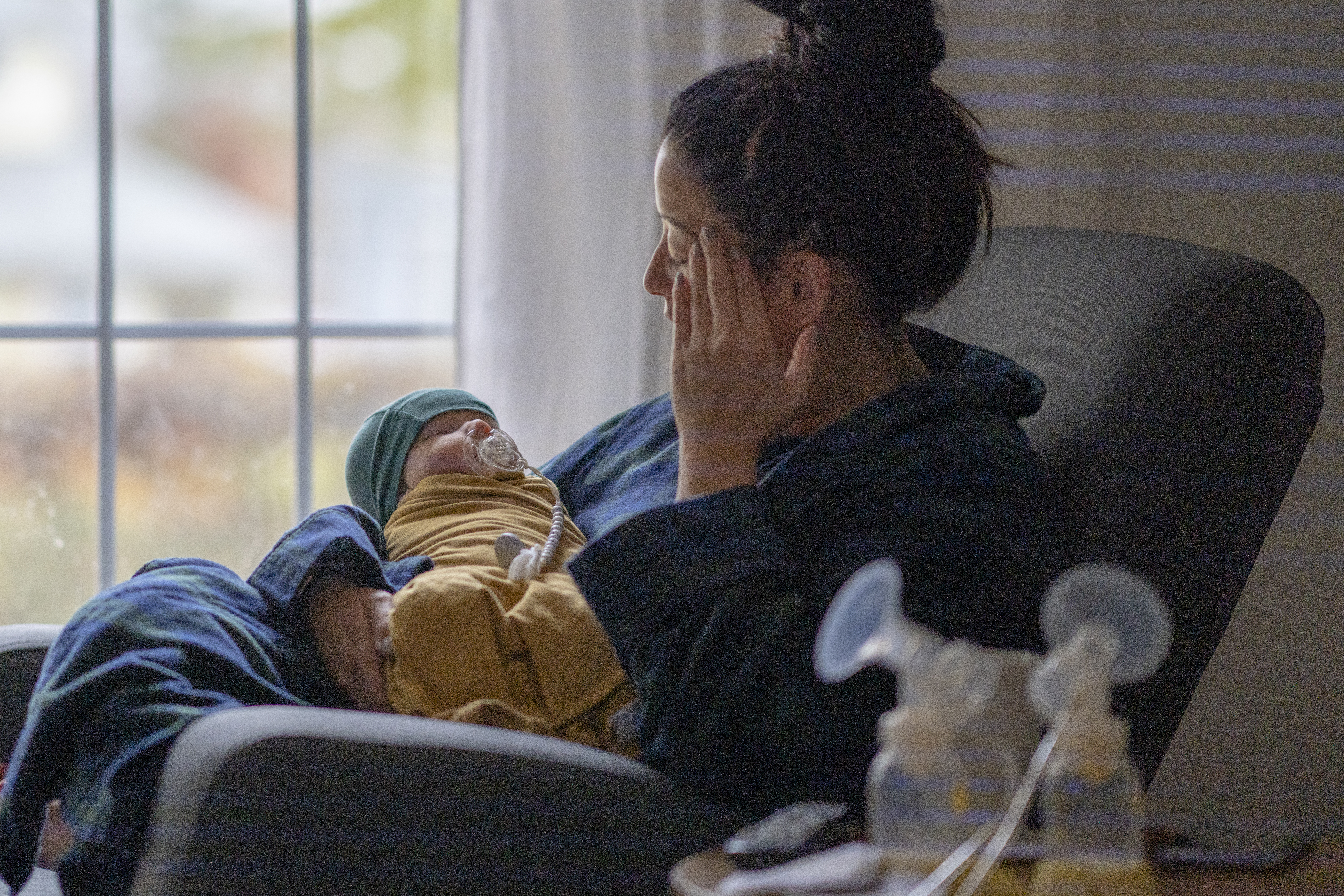

Expert health content provided
by Harvard Health Publishing.
What to know about postpartum depression
The difference between the "baby blues" and postpartum depression
If you've spent any time around new moms, you've probably heard of the "baby blues." And now that you've got your own little one, you might be able to relate to feeling as if you've been overly emotional or cry far too easily.
While the baby blues can be distracting and uncomfortable, these feelings are usually temporary. They shouldn't interfere with your love, affection and care of your baby. But if it’s something more troublesome, you could have postpartum depression. This is a more serious problem that needs professional help.
The baby blues vs. postpartum depression
Postpartum depression is different. It affects up to 15% of new mothers. It usually begins in the first two to three months after your baby is born. You might start off feeling sad or hopeless, or sometimes guilty or worthless. You might struggle to concentrate or not be interested in anything, including your baby. In some cases, you might feel overwhelmed by your baby's needs and become intensely anxious. This sometimes leads to troubling thoughts or feeling obsessed about your little one's well-being.
You're more likely to develop postpartum depression if you have
- a previous history of depression, including depression during pregnancy
- troubles in your relationship with your partner
- few supportive family members or friends
- gone through a stressful event or situation in addition to having just given birth
Teenagers who have just given birth are more likely to struggle with postpartum depression, especially if they come from families with few economic resources.
What causes postpartum depression?
In the weeks after birth, your hormone levels swing. People with postpartum depression sometimes have small changes in the parts of the brain that process emotions and social interactions. Paying attention to these changes is important for you and also for your new baby.
When to call a professional
Some new parents might not realize that postpartum depression is a real, treatable illness. Or you might just assume that people should feel happy after having a baby and be too embarrassed or ashamed to ask for help.
If you're a new parent, contact your doctor if you develop any symptoms of postpartum depression. This includes anxiety, intense sadness or hopelessness, or difficulty sleeping. Call your doctor immediately if you have thoughts about harming yourself or the baby, or if you feel you can't care for your new baby.
The good news
Most people with postpartum depression recover completely. This is especially true if the illness is diagnosed and treated early. If you've had postpartum depression once, you're more likely to get it again with another pregnancy. Most importantly: don’t try to tell yourself, “It’s okay, I’ll get over it.” Discuss it with your partner, a family member or close friend. And make the call today to your doctor’s office.
Additional resources
American Psychiatric Association
Phone: 1-703-907-7300
Toll-Free: 1-888-357-7924
National Institute of Mental Health
Phone: 1-301-443-4513
Toll-Free: 1-866-615-6464
TTY: 1-866-415-8051
Postpartum Support International
Helpline: 1-800-944-4773
